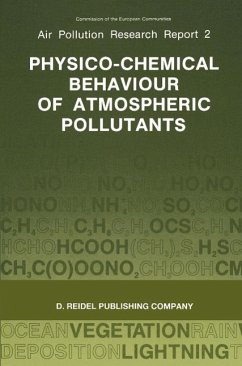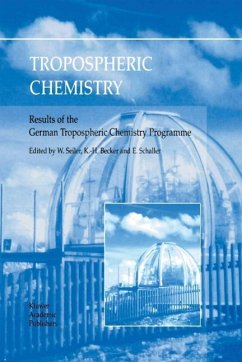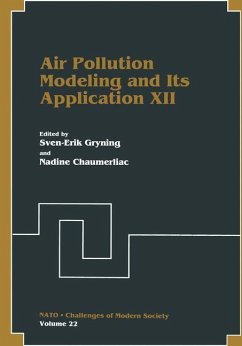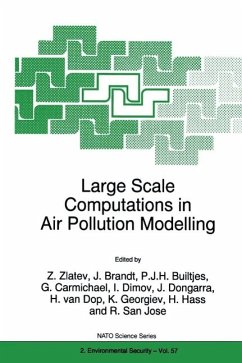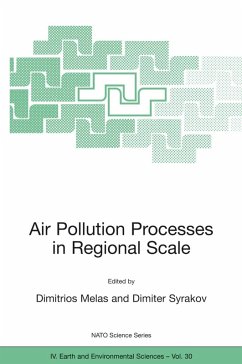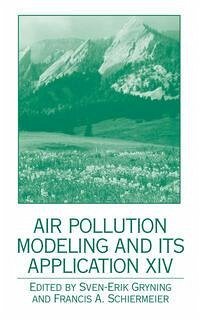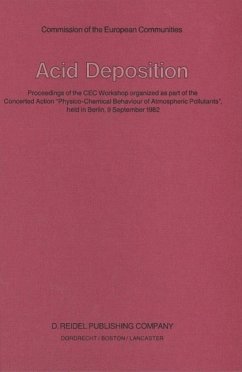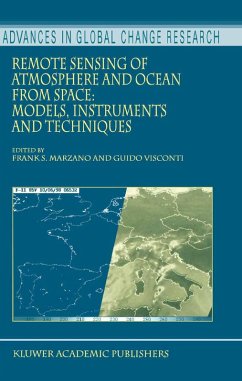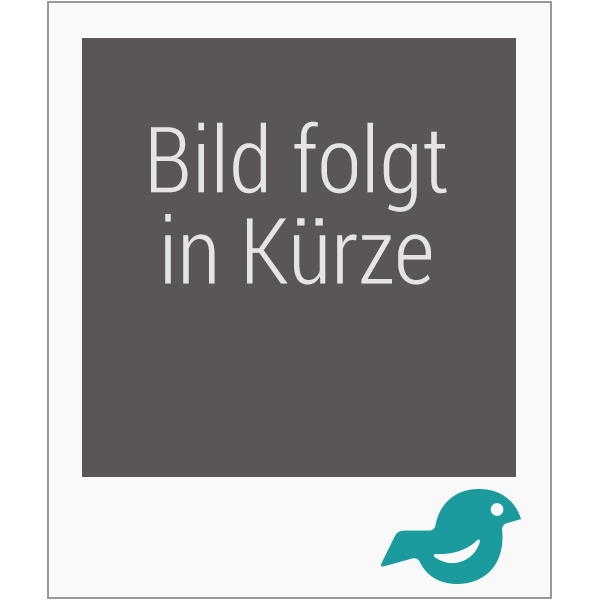
Air Pollution Modeling and its Application XV (eBook, PDF)

PAYBACK Punkte
80 °P sammeln!
In 1969 the North Atlantic Treaty Organization (NATO) established the Committee on Challenges of Modern Society (CCMS). The subject of air pollution was from the start, one of the priority problems under study within the framework of various pilot studies undertaken by this committee. The organization of a periodic conference dealing with air pollution modelling and its application has become one of the main activities within the pilot study relating to air pollution. These international conferences were successively organized by the United States (first five); Federal Republic of Germany (fiv...
In 1969 the North Atlantic Treaty Organization (NATO) established the Committee on Challenges of Modern Society (CCMS). The subject of air pollution was from the start, one of the priority problems under study within the framework of various pilot studies undertaken by this committee. The organization of a periodic conference dealing with air pollution modelling and its application has become one of the main activities within the pilot study relating to air pollution. These international conferences were successively organized by the United States (first five); Federal Republic of Germany (five); Belgium (five); The Netherlands (four) and Denmark (five). With this one Portugal takes over the duty. This volume contains the papers and poster abstracts presented at the NATO/CCMS International Technical Meeting on Air Pollution Modelling and Its Application held in Louvain-la-Neuve, Belgium, during 15-19 October 2001. This ITM was jointly organized by the University of Aveiro, Portugal (Pilot country) and by the Catholic University of Louvain, Belgium (host country). The ITM was attended by 78 participants representing 26 countries from Western and Eastern Europe, North and South America, Asia, Australia and Africa. The main topics of this ITM were : Role of Atmospheric Models in Air Pollution Policy and Abatement Strategies; Integrated Regional Modelling; Global and Long-Range Transport; Regional Air Pollution and Climate; New Developments; and Model Assessment and Verification.
Dieser Download kann aus rechtlichen Gründen nur mit Rechnungsadresse in A, B, BG, CY, CZ, D, DK, EW, E, FIN, F, GR, HR, H, IRL, I, LT, L, LR, M, NL, PL, P, R, S, SLO, SK ausgeliefert werden.



